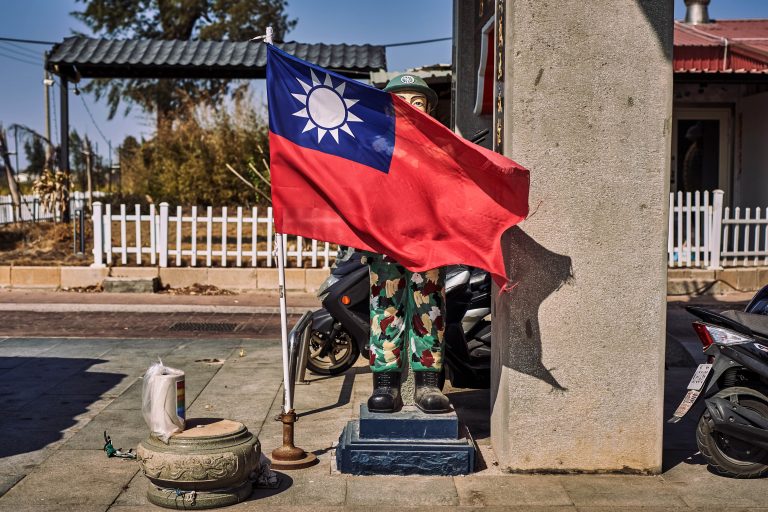Nicaragua’s government announced on Dec. 9 that it would move to officially cut diplomatic ties with Taiwan and recognize Communist China, which claims the self-governed island as part of its territory.
The People’s Republic of China (PRC) has requested that all countries wishing to form diplomatic relations with it must first terminate all ties with Taiwan, as it claims the latter to be a “rebel separatist force” that must be reclaimed by any means necessary.
Taiwan is officially called the Republic of China (ROC) — which governed the mainland prior to 1949, when it was pushed back to the island by communist armies.
The PRC was handed Taiwan’s U.N. seat after a decision in 1971, becoming the internationally recognized “China.” This status was further boosted when the United States dropped official recognition for Taiwan in 1979, though Washington and Taipei continue to maintain informal relations and military cooperation.
“There is only one China,” the Nicaraguan government said in a statement on Dec. 9 referring to the country’s “One-China” policy and announced the formal cut from Taiwan. “The People’s Republic of China is the only legitimate government that represents all of China, and Taiwan is an inalienable part of the Chinese territory.”
Success
You are now signed up for our newsletter
Success
Check your email to complete sign up
“As of today, Nicaragua breaks its diplomatic relations with Taiwan and ceases to have any official contact or relationship,” the statement added.
The move increases Taiwan’s diplomatic isolation in the global community, even as the island steps up official exchanges with countries such as Lithuania and Slovakia, which nevertheless do not formally recognize the ROC.
Now, Taiwan has official relations with only 14 countries, including Honduras and Guatemala in Central America.
The Chinese government has threatened retaliation towards Lithuania, ordering multinationals to stop doing business with the small European nation. Beijing’s order came as a response to the Lithuanian’s government allowing Taiwan to open a representative office in its capital city of Vilnius.
READ MORE:
Lithuania Facing Corporate Boycott Triggered by Beijing
Hundreds of Taiwanese Nationals Handed Over to Mainland China: Report
Taiwan: ‘Sadness and regret’
The ROC Ministry of Foreign Affairs (MOFA) expressed “sadness and regret” over Nicaragua’s decision to sever ties and said it would immediately halt bilateral cooperation and recall its diplomatic staff from the country.
“Taiwan as a part of international society has the right to diplomatic relations with other countries. We will continue to promote “Steadfast Diplomacy” to expand our international surviving space, dedicating ourselves to maintaining regional peace and stability, fighting for the international status that we deserve, and protecting this nation’s interests and the benefit of our people,” the MOFA added.
Taiwan President Tsai-wen also said in response to Nicaragua’s newly elected leader Daniel Ortega that, “The more successful Taiwan’s democracy, and the greater the international support, then the greater the pressure from the authoritarian camp.”
“Whether it’s diplomatic pressure or military intimidation, we will not change our determination to adhere to democracy and freedom, to go on the international stage and participate,” she added.
PRC Ministry of Foreign Affairs spokesman Wang Wenbin praised the government of Nicaragua in shifting its allegiance towards Beijing, saying that “the resumption of diplomatic ties between China and Nicaragua is a policy decision, and definitely not a trading of bargaining chips,” the minister said at a daily press briefing.
Wang denied that there were any “economic preconditions” to establishing the new diplomatic framework between the two nations.
READ MORE:
China Calls ‘Emergency Meeting’ With Japanese Envoy After Abe’s Remarks on Defending Taiwan
Taiwan Invited to US Democracy Summit, Drawing Protest From Beijing














